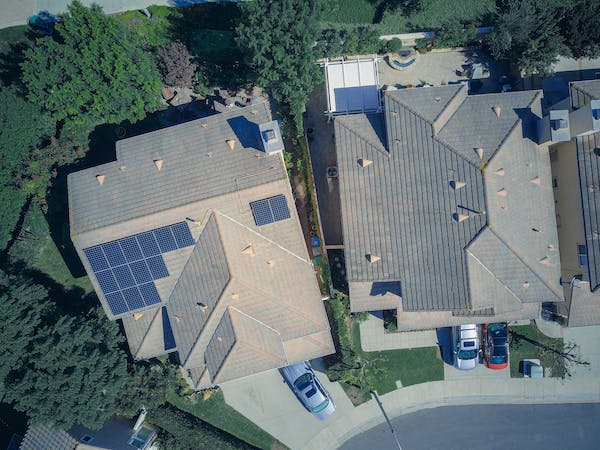Exploring the Economic Benefits of Solar Power – How Investing in Solar Can Improve the Environment
Investing in solar power can be a wise decision for both economic and environmental reasons. As the cost of energy from traditional sources continues to rise, the long-term savings associated with solar energy are becoming increasingly attractive. Additionally, solar energy is an environmentally friendly source of energy that can reduce the carbon footprints of businesses and individuals. In this article, we analyze the economic benefits of solar power and how investing in solar can improve the environment.
One of the primary economic benefits of solar power is its cost savings. Solar energy is becoming increasingly competitive with traditional sources of energy. The cost of solar energy has dropped significantly over the last decade, and continues to decline. This makes solar energy an attractive option for businesses and individuals looking to reduce their energy costs. As the cost of solar energy continues to decline, it will become even more attractive as a long-term energy solution.
The second economic benefit of solar energy is its scalability. Solar energy systems can be scaled up or down to suit the needs of businesses or individuals. This allows users to tailor their solar energy system to their exact needs, ensuring that they are neither over-investing nor under-investing in their system. Additionally, solar energy systems can be easily expanded and upgraded as technology improves. This allows users to take advantage of new technologies and remain competitive in the long-term.
The third economic benefit of solar energy is its ability to generate income. Solar energy systems can be used to generate additional income through the sale of excess energy to the grid. This income can offset the cost of the system and provide an additional source of revenue. Additionally, some governments offer tax incentives and other benefits to businesses and individuals that invest in solar energy systems.
Finally, investing in solar energy can have a positive environmental impact. Solar energy is a clean, renewable source of energy that does not generate harmful emissions. This can reduce the amount of air pollution and help to combat global warming. Additionally, solar energy systems require little to no water, making them an ideal choice for areas with limited water resources.
In conclusion, investing in solar energy has many economic and environmental benefits. The cost of solar energy continues to decline, making it an increasingly attractive investment. Additionally, solar energy systems are scalable and can generate additional income. Finally, investing in solar energy can reduce air pollution and help to combat global warming. For these reasons, investing in solar can be an economically and environmentally sound decision.
Harnessing Solar Energy for Sustainable Energy Solutions – What Are the Benefits and Challenges?
Solar energy has emerged as a viable option for sustainable energy solutions. Solar energy is a renewable resource, meaning it can be harnessed without depleting its source. Solar energy is available in most geographic areas and is cost effective, making it a desirable energy source. However, there are benefits and challenges associated with utilizing solar energy for sustainable energy solutions.
The primary benefit of solar energy is its ability to reduce reliance on traditional energy sources. Solar energy is a clean, non-polluting energy source that can be used for a variety of applications. This includes powering homes and businesses or providing electricity for public transportation systems. By utilizing solar energy, communities can reduce their reliance on fossil fuels and shift towards more sustainable energy sources. Additionally, solar energy is cost effective, as it can reduce electricity bills and is often cheaper than traditional energy sources.
Another benefit of solar energy is its scalability. Solar energy systems are modular and can be scaled to fit any size project. This allows for greater flexibility in designing energy solutions and allows for systems to be tailored to individual needs. Solar energy is also easy to maintain, as the technology is relatively simple and requires minimal maintenance.
Despite the many benefits of solar energy, there are also challenges associated with its use. For instance, solar energy systems require a significant amount of space to be effective. As such, they may not be suitable for densely populated areas or areas with limited space. Additionally, solar energy systems can be costly to install and require significant upfront investments. Finally, solar energy is dependent on weather conditions, and its efficiency can be reduced during periods of overcast or cloudy skies.
In conclusion, solar energy is a viable option for sustainable energy solutions. It is renewable, cost effective, and can be scaled to fit any size project. However, there are also challenges associated with its use, such as the need for space and the potential for reduced efficiency due to weather conditions. As such, it is important to consider the benefits and challenges of solar energy before utilizing it for sustainable energy solutions.
The Growing Popularity of Solar Panels: Understanding the Different Types, Prices, and Benefits
The demand for solar panels has been steadily increasing in recent years as more people become aware of the benefits they offer. As they become more affordable and efficient, solar panels are becoming an increasingly attractive investment for homeowners and businesses alike. This article will explore the different types of solar panels, their prices, and the benefits they provide.
Solar panels come in two basic types: monocrystalline and polycrystalline. Monocrystalline solar cells are made from a single crystal of silicon and are known for their high efficiency, typically around 15-20%. They are also more expensive than polycrystalline solar panels. Polycrystalline solar cells are made from multiple crystals of silicon and are usually less efficient than monocrystalline panels, but they are the more affordable option.
When it comes to price, the cost of solar panels depends on a number of factors, such as the type of panel, size, and efficiency. Monocrystalline solar panels are typically the most expensive choice, while polycrystalline panels are generally the least expensive. The size and efficiency of the panel also affect the price, with larger and higher-efficiency panels costing more.
Finally, the benefits of solar panels are numerous and varied. One of the most significant advantages is the fact that they provide a source of clean, renewable energy that does not produce harmful emissions. Solar panels are also a great way to reduce utility bills, as they can generate enough electricity to meet most of a household’s needs. Additionally, solar panels require very little maintenance, making them a hassle-free investment that can pay off for years to come.
In conclusion, solar panels are becoming increasingly popular due to their various benefits and affordability. With the different types of solar panels, their prices, and the advantages they offer, it is easy to understand why they are becoming such a popular choice.
Powering the Future with Solar – What Are the Impactful Benefits to Our Environment?
The use of solar energy is becoming increasingly popular as a reliable and renewable energy source. Solar energy has the potential to provide significant environmental benefits in the form of reduced air pollution and greenhouse gas emissions, as well as energy security. Sunlight is a natural resource that can be harnessed to produce electricity, and solar energy is one of the most promising sources of renewable energy. It is abundant, renewable, and clean, and it has the potential to reduce our dependence on fossil fuels.
Solar energy production does not produce any carbon emissions, making it a clean source of energy. This means that using solar energy as an energy source will help to reduce the global environmental impact of burning carbon-based fuels. This reduction in air pollution can have a significant impact on public health, as access to clean air is essential for good health. In addition, the use of solar energy can also reduce water pollution, as water used in the production of electricity from fossil fuels can be contaminated with heavy metals and other pollutants.
Solar energy can also help to reduce greenhouse gas emissions, which are causing climate change. Solar panels produce no emissions while they generate electricity, so they can help to reduce the amount of greenhouse gases released into the atmosphere. This can contribute to reducing the environmental impacts of climate change, such as more extreme weather events, rising sea levels, and changes in ecosystems.
Finally, solar energy can also help to reduce our dependence on fossil fuels. Fossil fuels are finite resources, and their use is becoming increasingly expensive. By switching to solar energy, we can reduce our dependence on these finite resources and ensure that our energy needs are met without depleting the earth’s resources.
In conclusion, the use of solar energy has the potential to provide a number of environmental benefits. It can reduce air and water pollution, reduce greenhouse gas emissions, and reduce our dependence on fossil fuels. By investing in solar energy, we can take steps towards a more sustainable future.
Reaping the Benefits of Solar-Powered Homes – What Are the Financial and Environmental Benefits?
The solar revolution is slowly gaining traction, with more and more homeowners investing in solar-powered homes. This is a wise decision, as solar technology can offer both financial and environmental benefits.
First, let us look at the financial benefits. Investing in solar technology can reduce energy costs substantially, in some cases by up to 70%. This is due to the fact that solar energy is free and abundant. Additionally, many states offer tax incentives for homeowners who install solar panels. This can lower the overall cost of installation by thousands of dollars. Furthermore, installing solar panels increases the value of a home, as they are seen as a desirable asset by prospective buyers.
The environmental benefits of solar-powered homes are equally impressive. By installing solar panels, homeowners can reduce their carbon footprint significantly. This is because solar energy does not produce any carbon dioxide or other harmful emissions. Additionally, solar energy is a renewable resource, meaning that it is virtually inexhaustible. This is in stark contrast to other forms of energy, such as coal or gas, which are finite resources.
In conclusion, installing solar panels in a home is a wise investment, as it offers both financial and environmental benefits. Homeowners can save money on energy costs and reduce their carbon footprint at the same time. This makes solar-powered homes a win-win for both the planet and homeowners’ wallets.






